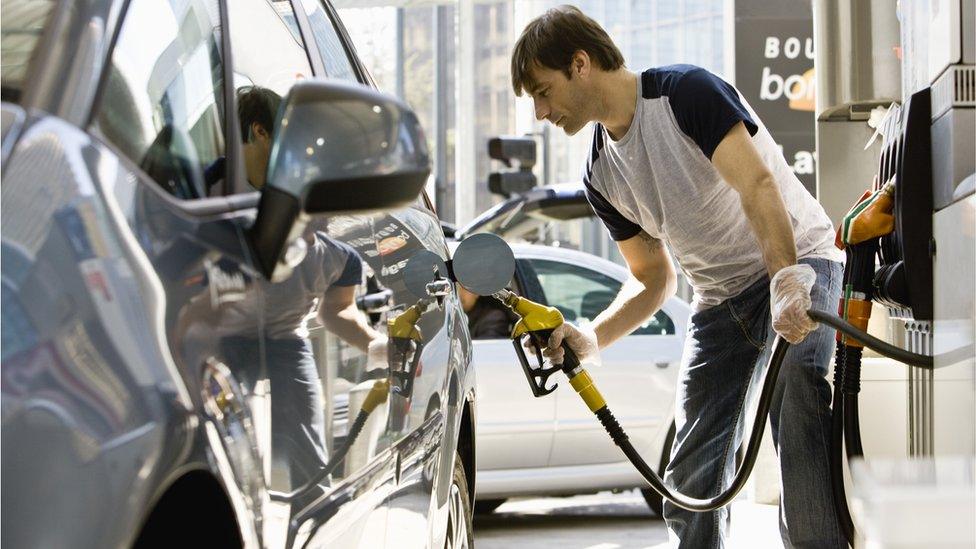Fuel protests: Arrests for slow driving during motorway delays
- Published
- comments
Watch: Motorways brought to a standstill by fuel price protesters
More than a dozen protesters were arrested for driving too slowly during demonstrations on motorways in England, Wales and Scotland over fuel prices.
The go-slow action mainly targeted three-lane motorways with convoys of vehicles crawling along two lanes - leaving the "fast" outside lane free.
Twelve people were arrested during a protest on the M4, which led to the Prince of Wales Bridge, between England and Wales, being closed.
Another man was arrested near the A38.
Protesters, organised under the social media banner Fuel Price Stand Against Tax, drove in a series of convoys at 30mph (48.3km/h) to cause gridlock on major roads and motorways.
Chief Superintendent Tom Harding from Gwent Police said people had been arrested for driving under 30mph for a "prolonged amount of time".
The roads affected by disruption included:
the M4 and Prince of Wales Bridge
the M5 in Devon
the M32 in Gloucestershire
the A38 in Devon
the M180 in Lincolnshire
the A12 in Essex
the A92 in Scotland
the A64 near York
Gwent Police said organisers of the protest had been given a legal notice to prevent them from blocking the bridge over the River Severn and from driving under 30mph.
Ch Supt Harding said restrictions had been placed on the protest as otherwise "emergency and critical services" would have been restricted.

£4,000 added to our fuel bill
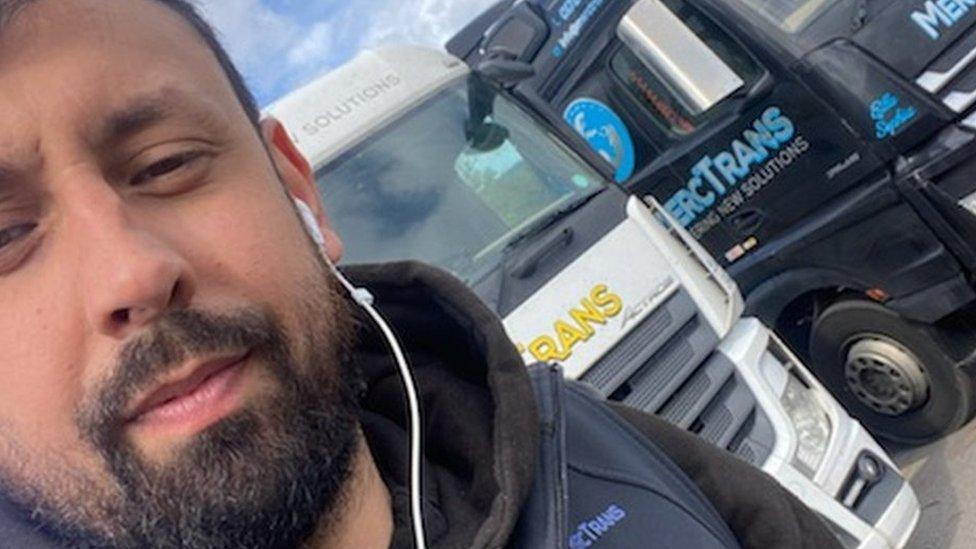
Tariq Akram said other cars joined the convoy as it went by
Tariq Akram said his was one of 50 vehicles making the 60-mile journey through Scunthorpe and Doncaster at 20mph.
The Scunthorpe truck driver told the BBC his company had added £4,000 to its fuel bill in the past four months because of rising prices.
"The turnout was absolutely fantastic. There were 35 vehicles from our yard alone who took part," he said.
"At one point, I thought some cars wanted to overtake so I tried to let them by, then I realised they were joining in."

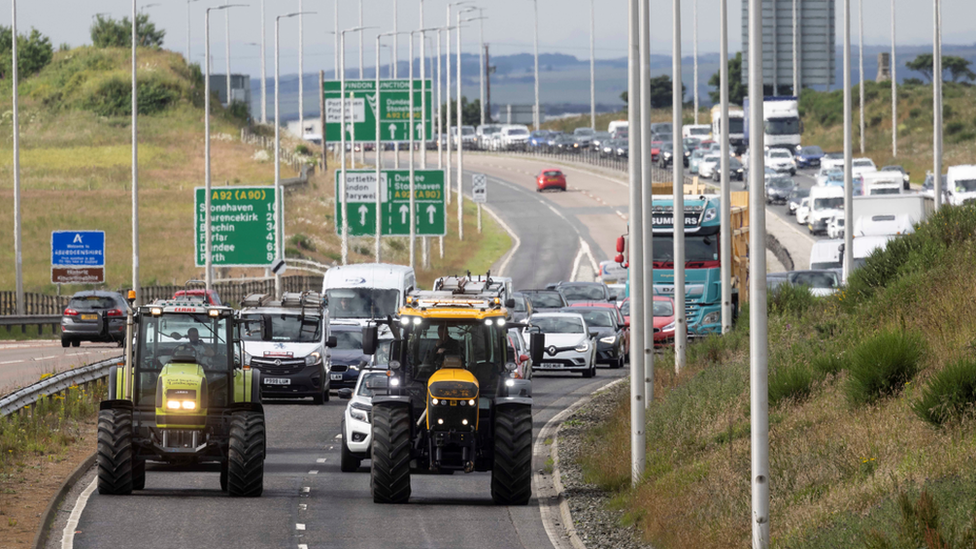
Police Scotland has told drivers to drive at an appropriate speed for the conditions
Avon and Somerset Police said all protests in its area had finished and thanked the public for their patience in a tweet at 15:20 BST.
Earlier, Devon and Cornwall Police said it was aware of a go-slow protest heading northbound from Exeter services on the M5.
The force also said a further protest began on the A38 heading north from Ivybridge, where a man in his 50s was arrested after ignoring a warning about unsafe driving.
"Unfortunately we have had unsafe driving on the A38 including vehicles travelling at a dangerously low speed," a force spokesman said.

'I'm not sure what they're achieving'
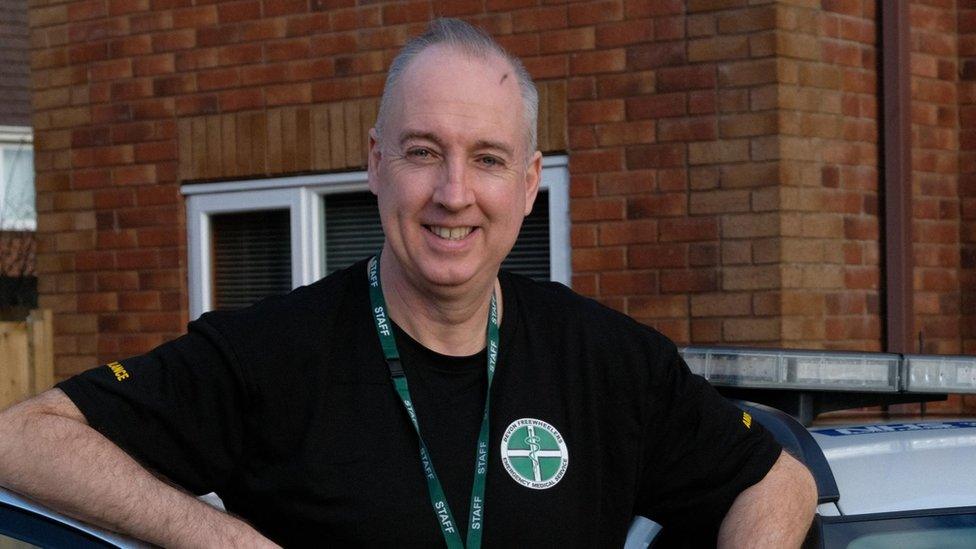
Steve Nash, who got stuck on the M5, said the protesters might be "going about it the wrong way"
Steve Nash, who was delayed on the M5 by protesters as he drove to Exeter Airport to return a hire car, is hopeful the delay will not result in a penalty fee.
"I'm not sure what they're achieving - other than inconveniencing people," he said.
"I'm not critical of the sentiment behind what they're trying to do, I just think they're possibly going about it the wrong way."
The retired civil servant from Tiverton said his journey that would usually take 20 minutes took an hour on Monday.
He said he felt the protesters should be "stood outside parliament or writing to their MPs".
"I think it's not affecting the people you need to actually protest, which is Parliament. The protesters have actually inconvenienced everyone else who is inconvenienced by high fuel prices."

Police Scotland said it had been aware of protests on motorways and trunk roads and urged motorists to drive at an appropriate speed for the road conditions.
But the force had warned journey times could be longer than normal.
In Lincolnshire, police blocked junction one between the M180 and M18 forcing protesters to remain on the former.
West Yorkshire Police said a "single tyre deflation device" - also known as a "stinger" - had been deployed, but it was not used.
West Mercia Police said some of the tactics used during a protest on the M54, which had ended by about 08:30 BST, had "compromised the safety of other road users" and said officers would take action against those who committed traffic offences.
A Facebook event called Stand Up to Fuel Prices, with more than 57,000 responses, had called for people to take their cars, lorries and tractors to cause roadblocks all over the country "until there is change".
The organisers wrote that fuel costs were driving up other costs of living and said they hoped the more people that joined the protest, the sooner living costs would drop.
Fuel prices have risen to record highs in recent weeks with figures from data firm Experian showing the average price of a litre of petrol at UK forecourts had hit 191.5p and 199.0p for diesel on Sunday.
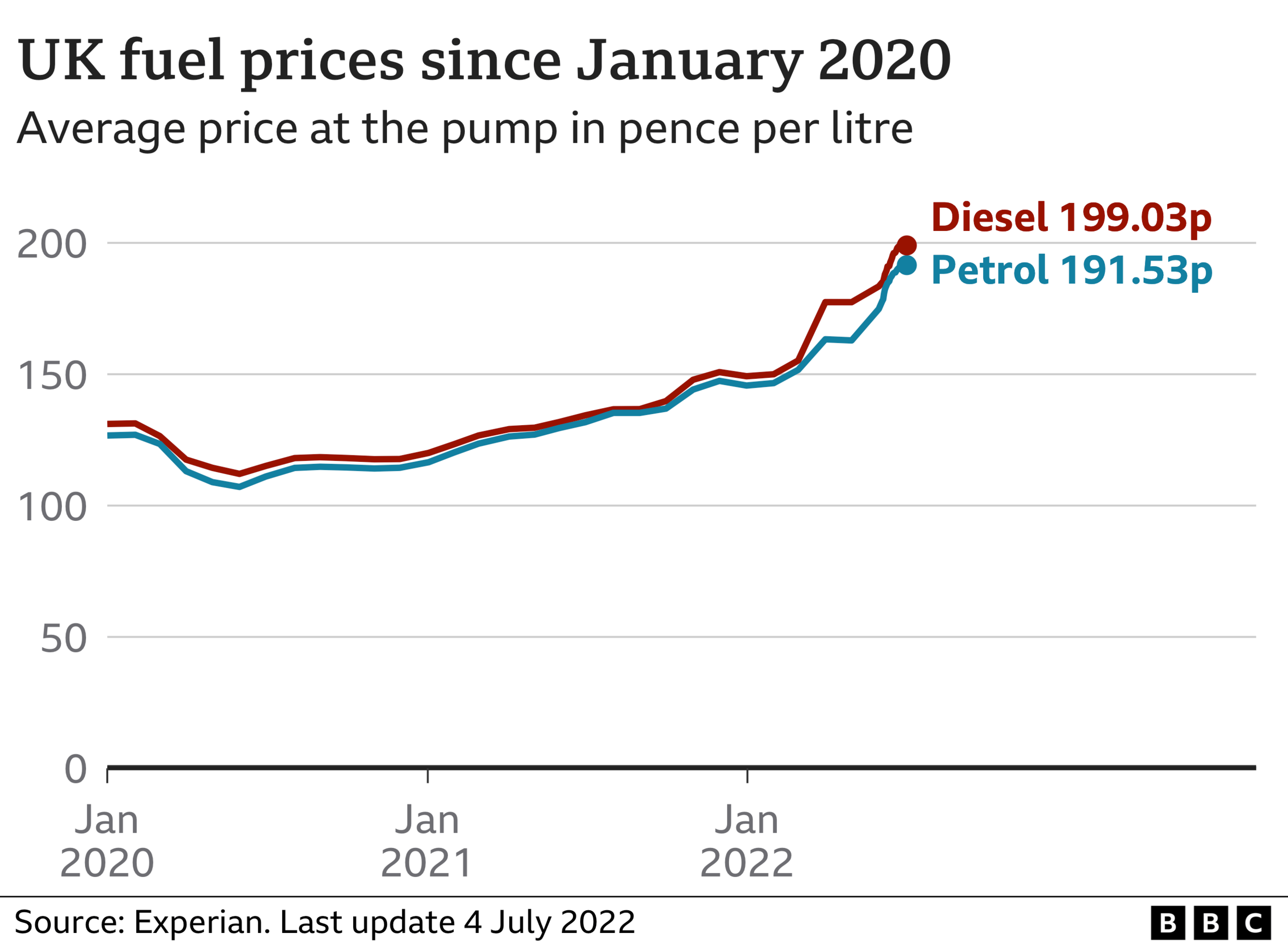
RAC fuel spokesman Simon Williams said there did not appear to be any sign of retailers reducing forecourt prices, despite weekly wholesale costs having fallen for five weeks.
Chancellor Rishi Sunak has said he will carefully consider calls for a "more substantial" fuel duty cut after the 5p per litre reduction implemented in March failed to halt price rises.
Rising fuel prices have been pushed even higher by the war in Ukraine, with Russia, one of the world's largest oil exporters, facing sanctions.
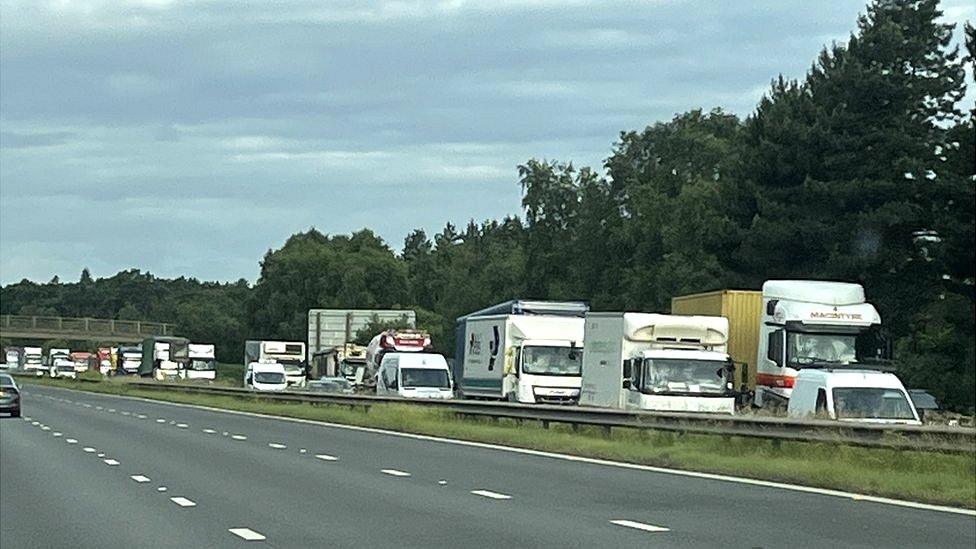
A convoy of vehicles on the M180 in Lincolnshire
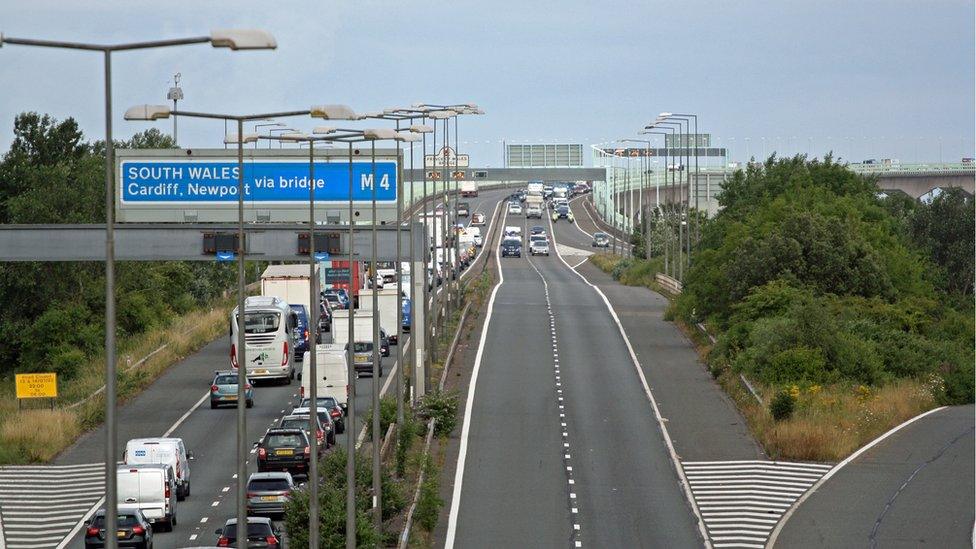
Police escort vehicles across the Prince of Wales Bridge, which runs between England and Wales
The government had said while it understands people are struggling with rising prices and have a right to protest, "people's day-to-day lives should not be disrupted" and warned traffic delays "will only add to fuel use".
Howard Cox, founder of campaign group FairFuelUK, said other countries had cut fuel duty more than the UK and called for a reduction of at least 20p.
While he said his organisation was not involved in the protests, he said there was an appetite for them - and if the government did not deliver on the issue there could be "some serious escalation of protests".
Additional reporting by Jasmine Andersson and Doug Faulkner

Are you experiencing disruption? Are you a protester? Share your experiences by emailing haveyoursay@bbc.co.uk, external.
Please include a contact number if you are willing to speak to a BBC journalist. You can also get in touch in the following ways:
WhatsApp: +44 7756 165803
Tweet: @BBC_HaveYourSay, external
Please read our terms & conditions and privacy policy
If you are reading this page and can't see the form you will need to visit the mobile version of the BBC website to submit your question or comment or you can email us at HaveYourSay@bbc.co.uk, external. Please include your name, age and location with any submission.
Related topics
- Published4 July 2022
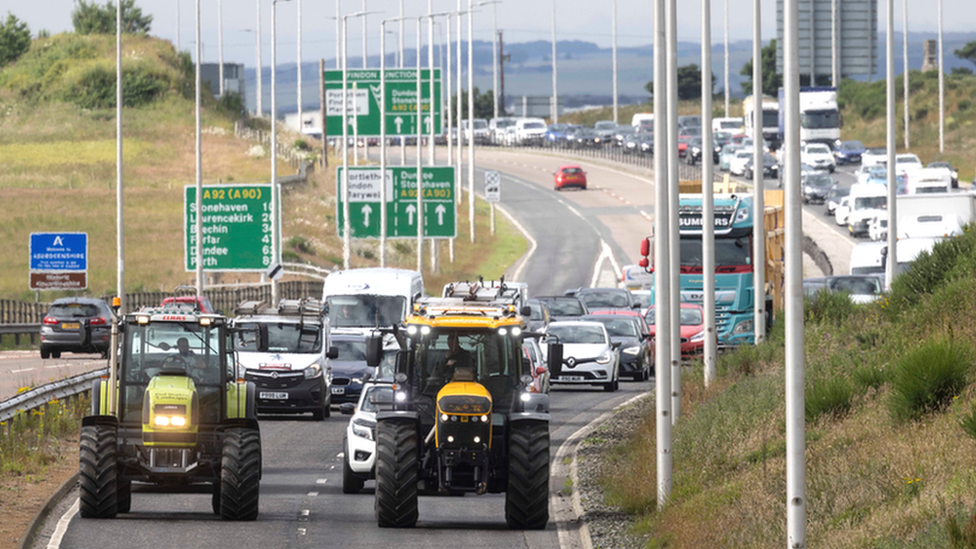
- Published15 June 2022
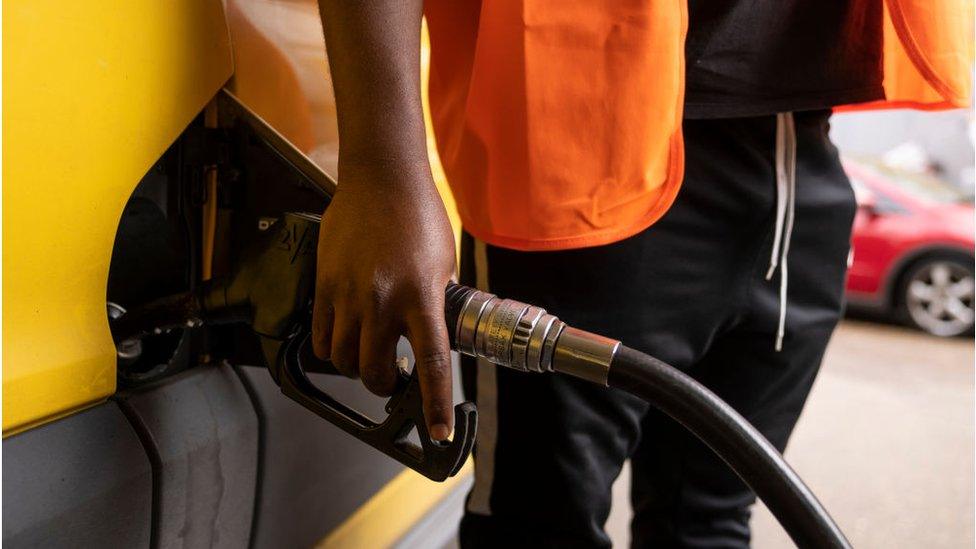
- Published13 June 2022
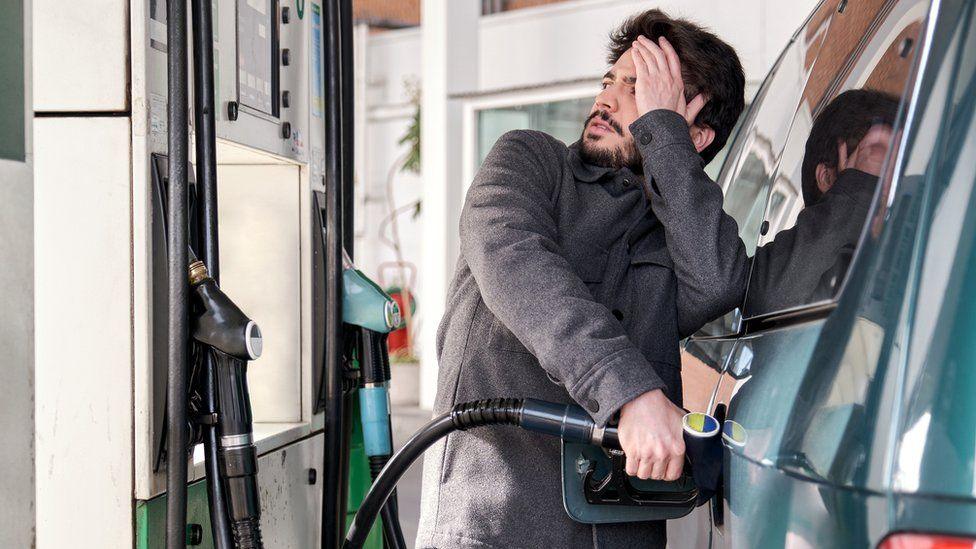
- Published9 June 2022
